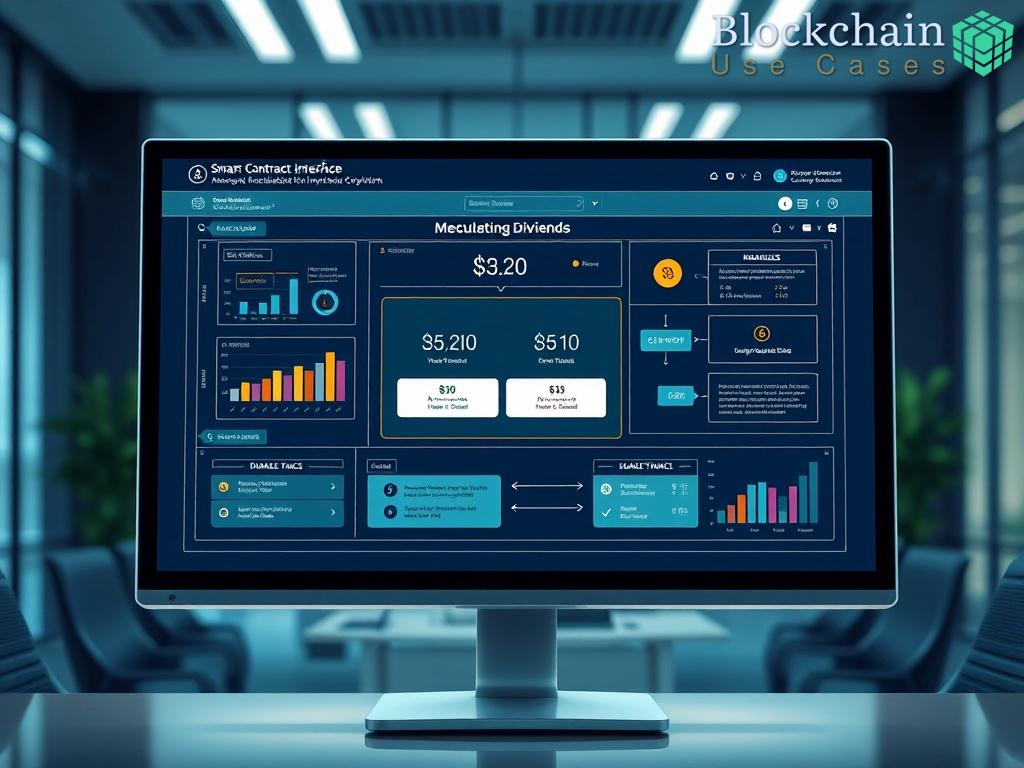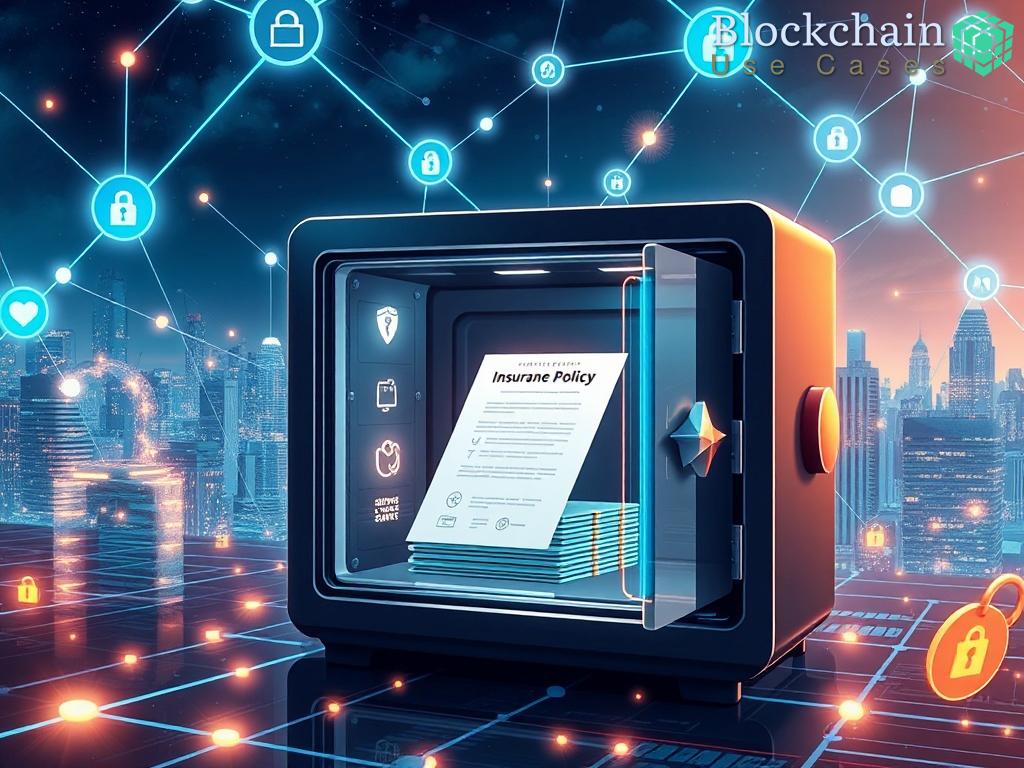Framework for Decentralized Insurance M&A
The landscape of mergers and acquisitions (M&A) is rapidly evolving, and decentralized systems are poised to play a pivotal role in this transformation. With the integration of blockchain technology and distributed ledgers, insurance companies can streamline their M&A processes, enhancing transparency, security, and efficiency. As the insurance sector faces increasing pressures to adapt to a digital-first environment, the adoption of decentralized frameworks becomes not just beneficial but essential.
A robust decentralized M&A framework consists of several critical components that work in conjunction to optimize the acquisition process. By leveraging these elements, insurance companies can ensure that they are well-equipped to navigate the complexities of mergers and acquisitions.
- Smart Contracts: These self-executing contracts with the terms of the agreement directly written into code can automate many processes involved in M&A transactions.
- Distributed Ledger Technology (DLT): DLT provides a secure, immutable record of transactions, reducing the risks associated with fraud and data manipulation.
- Decentralized Identity Solutions: These solutions enable secure and efficient verification of identities, crucial for due diligence during M&A.
- Interoperability Standards: Establishing common protocols allows for seamless integration between different decentralized platforms, facilitating collaboration.
- Data Privacy Mechanisms: Ensuring that sensitive data is protected while still allowing for necessary access during the M&A process.
The adoption of a decentralized framework for managing insurance company mergers and acquisitions offers several significant advantages. These benefits not only enhance operational efficiency but also contribute to the overall success of the M&A strategy.
| Benefit | Description |
|---|---|
| Increased Transparency | All parties have access to the same information, reducing the likelihood of disputes. |
| Enhanced Security | Decentralized systems are less vulnerable to hacking and data breaches. |
| Cost Efficiency | Reduction in administrative overhead and manual processes leads to lower transaction costs. |
| Faster Transactions | Automation through smart contracts accelerates deal closure times. |
| Improved Compliance | Built-in compliance features help ensure that all transactions adhere to regulatory requirements. |
Blockchain Technology in M&A Transactions

The rise of blockchain technology is not just a trend; it is a paradigm shift in how mergers and acquisitions are conducted, particularly in the insurance sector. With its inherent characteristics of transparency, immutability, and decentralization, blockchain provides a robust infrastructure that enhances the integrity and efficiency of M&A transactions. As organizations seek to streamline their processes and reduce risks, understanding the multifaceted roles of blockchain technology becomes increasingly critical.
Transforming Due Diligence in M&A transactions is one of the most impactful applications of blockchain technology. Traditionally, due diligence has been a labor-intensive process involving extensive documentation and verification of information. Blockchain enables real-time access to verified data recorded on an immutable ledger, thereby facilitating a more efficient review process. This not only accelerates timelines but also minimizes the potential for errors or discrepancies, providing a more reliable foundation for making informed decisions.
Moreover, smart contracts are at the forefront of transforming the operational dynamics of M&A transactions. These self-executing contracts automate various stages of the acquisition process, from initial negotiations to the final transfer of assets. By embedding predefined terms into the blockchain, parties can ensure that contractual obligations are automatically enforced, significantly reducing the likelihood of disputes. This automation contributes to faster transaction times, allowing companies to close deals with greater agility and confidence.
Additionally, the enhanced security features of blockchain technology cannot be overstated. In an era where data breaches are alarmingly common, the decentralized nature of blockchain offers a fortified defense against unauthorized access and fraud. Each transaction is securely encrypted and linked to previous transactions, creating a chain of trust that is difficult to tamper with. This level of security is crucial in protecting sensitive information during high-stakes M&A negotiations.
Risk Assessment in Decentralized M&A Models
As the insurance sector embraces decentralized systems for M&A, the importance of accurate risk assessment cannot be overstated. Traditional M&A models have relied on centralized processes that often leave room for oversight and miscalculation. In contrast, decentralized frameworks offer innovative solutions that enhance risk assessment methodologies. By utilizing blockchain technology and smart contracts, insurance companies can gain deeper insights into potential risks while ensuring that all relevant data is securely recorded and accessible.
Decentralized M&A models fundamentally shift how risks are evaluated and managed. The transparency and immutability of blockchain technology allow companies to identify potential red flags early in the process. This proactive approach not only aids in safeguarding company assets but also fosters a culture of trust among stakeholders.
To effectively navigate the complexities of risk assessment in decentralized M&A models, insurance companies should focus on the following critical elements:
- Data Integrity: Ensuring that all data recorded on the blockchain is accurate and verified to minimize misinformation.
- Automated Compliance Checks: Utilizing smart contracts to automatically enforce compliance with regulatory standards, thereby reducing legal risks.
- Scenario Analysis: Conducting simulations based on various market conditions to understand potential impacts on the merger or acquisition.
- Stakeholder Engagement: Involving all parties early in the risk assessment process to identify concerns and outline mitigation strategies.
By focusing on these areas, insurance companies can implement robust risk assessment frameworks that not only protect their interests but also enhance their strategic decision-making capabilities.
As decentralized systems continue to evolve, so too will the methodologies for risk assessment. The integration of artificial intelligence and machine learning with blockchain technology promises to revolutionize how risks are analyzed and managed. Insurance companies that stay ahead of these trends will not only safeguard their operations but also position themselves as leaders in the ever-changing landscape of mergers and acquisitions.
Regulatory Challenges for Decentralized Systems
As decentralized systems gain traction in the realm of insurance company mergers and acquisitions, the regulatory landscape presents unique challenges that demand careful consideration. The promise of innovation brought by blockchain and smart contracts must be balanced with adherence to existing regulatory frameworks. Understanding these challenges is essential for stakeholders looking to leverage decentralized solutions effectively.
The transition to decentralized systems brings forth a myriad of compliance complexities. Traditional regulatory frameworks, which are often designed for centralized entities, may struggle to accommodate the nuances of decentralized operations. This misalignment can lead to uncertainty regarding compliance obligations, potentially deterring insurance companies from fully embracing decentralized M&A processes.
Moreover, the global nature of many insurance companies complicates matters further. Different jurisdictions may impose varying regulations, making it imperative for organizations to develop a comprehensive understanding of the legal landscape in which they operate. Failure to navigate these complexities not only jeopardizes individual transactions but can also undermine the integrity of the entire decentralized approach.
To address the regulatory challenges associated with decentralized M&A, insurance companies should consider adopting proactive strategies. These strategies can help ensure compliance while maximizing the benefits of decentralization. Below is a list of key strategies:
- Engage with Regulatory Authorities: Establishing open lines of communication with regulators can facilitate better understanding and collaboration, paving the way for tailored regulatory solutions.
- Develop Clear Governance Frameworks: Creating robust governance structures that outline roles, responsibilities, and compliance protocols can enhance accountability within decentralized systems.
- Invest in Regulatory Technology (RegTech): Leveraging advanced technologies to automate compliance processes can streamline operations and reduce the risk of non-compliance.
- Participate in Industry Coalitions: Joining industry groups focused on advocacy and best practices can amplify voices in regulatory discussions and help shape favorable outcomes.
Ultimately, fostering a culture of compliance within decentralized systems is paramount. This involves not only adhering to existing regulations but also anticipating future regulatory developments. By cultivating an environment that prioritizes compliance, insurance companies can confidently navigate the complexities of decentralized M&A, harnessing its potential for innovation while safeguarding their operations against regulatory pitfalls.
Integration Strategies Post-Merger in Decentralized Environments
In the aftermath of a merger, the integration of two companies presents both challenges and opportunities, especially in decentralized environments. The unique nature of decentralized systems facilitates a smoother transition by allowing for real-time data synchronization and enhanced collaboration across various departments. By adopting blockchain technology, companies can ensure that all necessary information is accessible, thereby fostering an atmosphere of transparency and trust. This is particularly crucial in the insurance sector, where regulatory compliance and customer data integrity are paramount.
Post-merger integration in decentralized frameworks hinges on the ability of teams to work collaboratively across boundaries. Utilizing decentralized identity solutions can significantly streamline the verification process for employees and stakeholders, ensuring that everyone involved has the necessary credentials and access. Furthermore, the implementation of smart contracts can automate routine tasks, allowing teams to focus on strategic initiatives rather than getting bogged down by administrative chores. The combination of these technologies not only enhances operational efficiency but also cultivates a culture of innovation as employees are empowered to contribute more meaningfully towards the company’s objectives.
As decentralized systems evolve, maintaining compliance and data security remains a critical concern. Post-merger integration strategies must include robust data privacy mechanisms to protect sensitive information while still allowing for necessary access across teams. By embedding compliance checks within smart contracts, organizations can ensure that all transactions and operational processes adhere to regulatory standards. Additionally, the immutable nature of blockchain technology provides a secure environment where data integrity is preserved, thus fortifying the trust of stakeholders and clients alike. The synergy between compliance and decentralization not only mitigates risks but also positions the merged entity for sustainable growth in a competitive landscape.


















